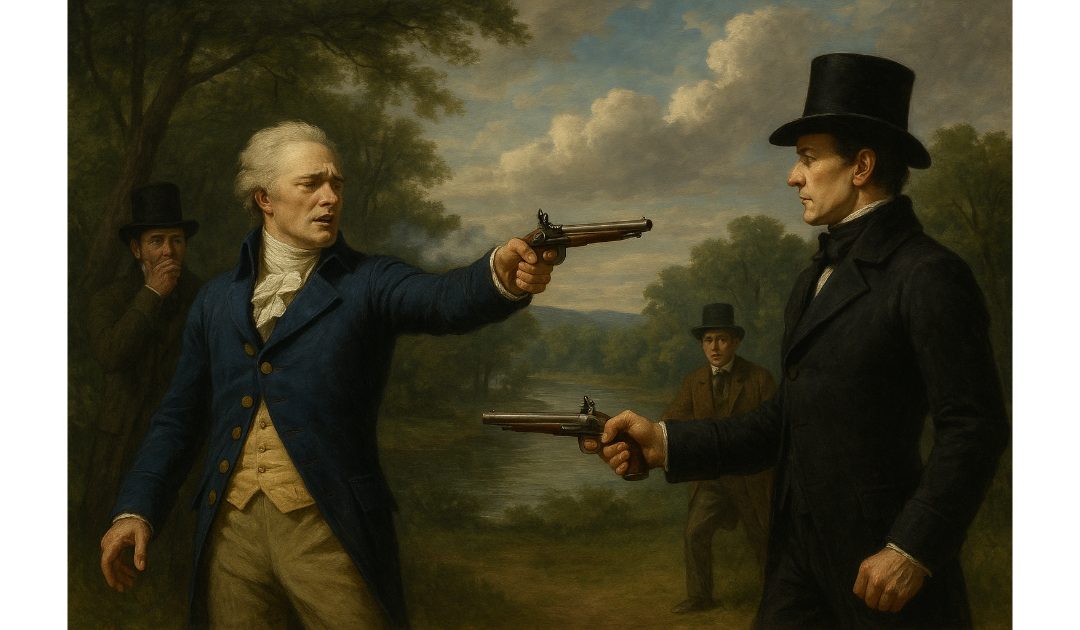On the 11th of July, 1804, Alexander Hamilton was mortally wounded in a duel. Alexander Hamilton was born on the 11th of January in either 1755 or 1757 in Charlestown. He was born out of wedlock, and his father abandoned the family, leaving his mother to care for him and his brother. Tragically, his mother died when Hamilton was a teenager, leaving him orphaned. Despite these adversities, Hamilton’s intellect and determination shone through.
As a young man, he worked as a clerk for a trading company, where he honed his skills in business and accounting. His exceptional writing abilities caught the attention of local patrons, who sponsored his education in New York. Hamilton attended King’s College, now known as Columbia University, where he became deeply involved in revolutionary activities, advocating for the American colonies’ independence from British rule.
When the American Revolutionary War broke out, Hamilton joined the Continental Army, quickly rising through the ranks due to his leadership qualities and strategic mind. He became an aide-de-camp to General George Washington, serving as his trusted advisor and writing critical correspondence. Eager for combat, Hamilton eventually secured a field command and displayed bravery at the decisive Battle of Yorktown.
Following the war, Hamilton turned his attention to politics and law. He was a strong proponent of a robust central government, which led to his significant role in drafting the U.S. Constitution. Hamilton co-authored “The Federalist Papers” with James Madison and John Jay, a series of essays arguing for the Constitution’s ratification.
Hamilton served as the first Secretary of the Treasury under President George Washington. In this role, he laid the groundwork for the American financial system. He established the national bank, implemented tariffs, and created policies to manage the national debt. His vision promoted industrialisation and a strong federal government, contrasting with Thomas Jefferson’s agrarian ideals.
Hamilton’s tenure was not without controversy. His financial policies sparked fierce opposition, particularly from Jefferson and James Madison, leading to the formation of the first political parties in the United States. Hamilton led the Federalist Party, advocating for centralised authority and economic modernisation.
His personal life also garnered attention. Hamilton married Elizabeth Schuyler, with whom he had eight children. However, his reputation suffered due to the revelation of an extramarital affair with Maria Reynolds, which he admitted in the “Reynolds Pamphlet” to clear his name of financial impropriety.
Hamilton’s political career waned after he left the Treasury, but he remained influential, particularly in matters of national defence and foreign policy. His rivalry with Aaron Burr, a political adversary, culminated in a duel on the 11th of July 1804 in Weehawken, New Jersey. Hamilton was mortally wounded and died the following day, at the age of 47 or 49.
Alexander Hamilton’s legacy endures through his substantial contributions to the American government’s structure and economic system. He is commemorated on the ten-dollar bill, and his life story reached new audiences through the acclaimed musical “Hamilton,” which highlights his complex character and enduring influence on American history.
I think the only historical US politicians I have written about before are Abraham Lincoln and Richard Nixon, so I hope this goes some way to redress the omission.

